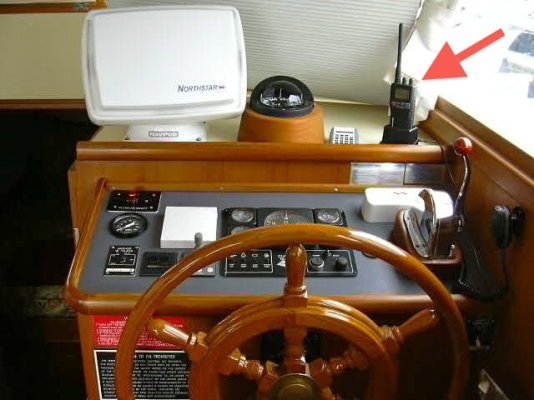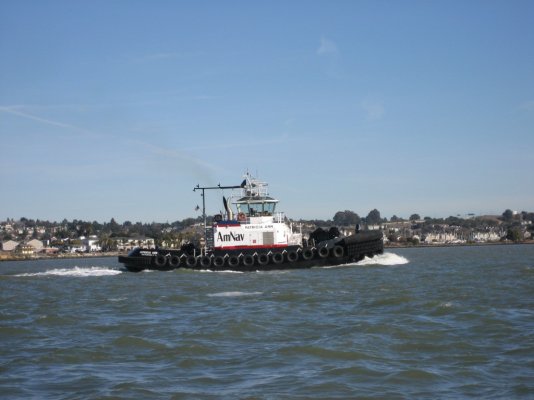markpierce
Master and Commander
- Joined
- Sep 25, 2010
- Messages
- 12,557
- Location
- USA
- Vessel Name
- Carquinez Coot
- Vessel Make
- penultimate Seahorse Marine Coot hull #6
Noonish today going east along the south shore of Carquinez Strait*we noticed a tug in mid-channel ten minutes ahead had*stopped and turned north from his eastward direction.* Heard the tug call the Coast Guard saying there was a 25-foot Bayliner adrift on the north side with a person on the bow.* The boat was without an anchor and would be drifting quickly west by the 2.5+ knot*ebb current.* The CG sent a boat to assist which got there very quickly.* I doubt the boater had a radio or signaling devices or he would have used them.* Doubt we would have noticed*his dilemma as we*were quite far on the opposite side of the strait.
There was little other boating activity on the strait today during*our run from Vallejo to Martinez and return.* A few minutes ahead of the tug was another tug pushing a barge.* We only saw one other vessel, a runabout anchored with two fishermen on the south side of the strait off Ozol.* The Bayliner's captain was lucky he didn't end up in San Pablo Bay all night.
There was little other boating activity on the strait today during*our run from Vallejo to Martinez and return.* A few minutes ahead of the tug was another tug pushing a barge.* We only saw one other vessel, a runabout anchored with two fishermen on the south side of the strait off Ozol.* The Bayliner's captain was lucky he didn't end up in San Pablo Bay all night.


